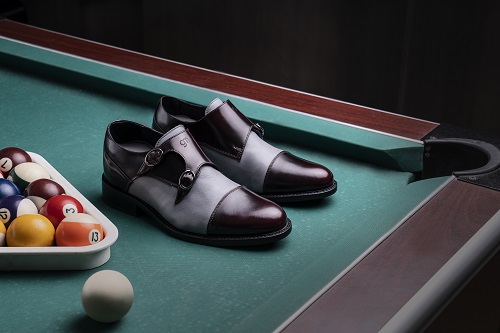
Does Height Matter?
As a vertically challenged blogger, I’ve noticed how physical stature has played a fundamental role in history, it’s written into its very fabric. The height of a historical figure can affect how we understand history and consequently, how we view ourselves. This might seem very dramatic, but I really want to show you how a couple of inches can matter.
Napoleon, for example, lent his name to a complex; an irate little man who feels the need to over compensate for his stature. The truth, however, is that Napoleon was above average height for the era, at 5’7” (168-170 cm). His nemesis, the Duke of Wellington, was a mere inch taller at 5’8” (172-173 cm). You see, at the time the French used a different measuring system than the English did, and as such, Napoleon was measured at 5’2”, following the French standards at the time. As is always the case with wartime propaganda, the British media pounced on this and published a flurry of cartoons that depicted Napoleon as diminutive and subservient to the towering and gallant Duke of Wellington. Of course, history is written by the victor, so the rest, as they say, is history.
The point is, our height plays an unavoidable role in our interactions in everyday life. Obviously, extremes in either case, being too tall or too short, can lead to serious difficulties in our daily roles. In truth, these people can do little to change these circumstances apart from adapting to their situations and hopefully allowing their true talents to flourish.
But that leaves about 90% of the global populations who are by definition of ‘average’ height and can alter their circumstances. But why should we strive to be that little bit taller?
Benefits of Being Tall
It seems that taller people:
- get better jobs
- make more money
- may even be smarter
- have a lower risk of diabetes
- can get cookie jars from high shelves
- are less susceptible to dementia
- have a lower risk of heart disease
- and see the stage better at concerts
You can see how the gene pool and prospective employers may be drawn toward taller people. This is serious! Typically, a sales manager will be taller than the salesperson. According to the Journal of Applied Psychology, for every inch above average height a person is, they earn $789 more each year. That might seem like peanuts, but over the long term, it could amount to hundreds of thousands of dollars.
And then there’s the social element. The way we believe we are seen by our peers can have a tremendous effect on our self-esteem, which consequently affects our performance.
So that’s enough about why it may be advantageous to have an inch or two on your colleagues and friends. How can we make the difference?
How to Be Taller, Without Spending a Fortune
Now, you could spend the best part of $100,000 having invasive limb-lengthening surgery, but that certainly doesn’t tick all the boxes for me. There is, of course, a much simpler, more economical, and pain-free way to rise above the crowd, and unsurprisingly, it’s been around for a while.
From being simply a way for the wealthy to ‘rise above’ the muddy (not to mention the contributions made by horses and other livestock) thoroughfares of medieval times, to Spartan soldiers creating an advantage over their enemy, or hippies in the ‘60s using platforms as a social tool, elevating their stature both physically and socially, people have always used height as an advantage, and have employed various methods to achieve this.
In keeping with the times, we still have a whole industry dedicated to this cause. The thing is, you might not be aware of it. These days, purveyors of elevated stature are a victim of their own success. Modern guidomaggi elevator shoes are designed to be so discreet that the majority of people don’t even know they exist.
The fact is, you may be cowering (figuratively speaking) beneath the stature of a boss, colleague, partner or friend, and really, would you feel intimidated if they were on your physical level? It may just be an illusion, but the self-esteem a person can gain with just an inch or two permeates through life and affects the decisions we make ─ and the outcomes.
Elevator Shoes: The Secret Industry
Now, don’t get me wrong, there’s no secret industry. It’s just that these days: how can you market something that you don’t want thrown about social media? The ‘invisibility’ of this product is a testament to how well it blends into everyday life. You simply can’t tell if that boss or colleague really does ‘have the reach’ on you.
This ‘secret’ industry has now evolved into a sector that can provide that ‘elevated’ status to everyone, regardless of the occasion or activity. Elevator shoes are now designed to add significant height while maintaining utmost discretion. You can get tennis-shoes for a wedding and formal shoes for the tennis court ─ it’s up to you; they’re available in any style or form you could imagine.
The heel is like any other heel on any other shoe. The uplift is built into the structure of the shoe, providing more rise (and comfort, an added bonus), while keeping the structure of a ‘normal’ shoe ─ nobody knows you’re wearing guidomaggi elevator shoes!
With such subtle designs for every activity you can think of, it’s a wonder why more people aren’t wearing elevator shoes. Then again, maybe they are, and we just don’t know it!
You may be interested in: 7 Must Try Secrets to Improve Credit Score

